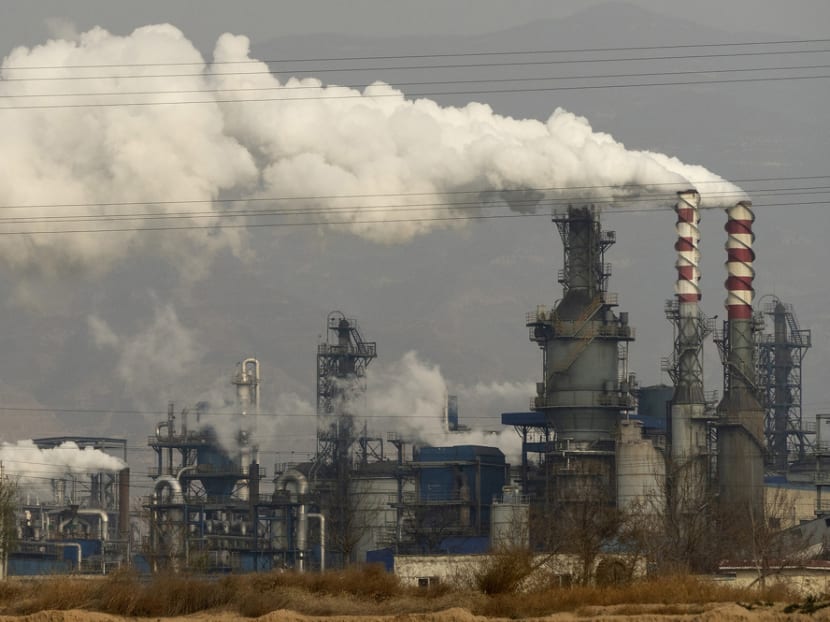Why China is facing a power crunch and what it means

A power crunch across China has rippled from factory floors to homes and even traffic lights in some places, leading economists to cut their growth forecasts for the world’s second-largest economy.
The shortages mirror tight energy supplies in Europe and elsewhere that have roiled commodity markets, as well.
Part of the problem is that the economic rebound after COVID-19 lockdowns has boosted demand, while lower investment by miners and drillers has constrained production.
But the crisis in China is partially due to its own environmental agenda, as President Xi Jinping’s vision of de-carbonising the economy discouraged the burning of coal, a cheap energy source that subsidised its economic growth for decades.
WHY CAN'T CHINA MEET ITS POWER DEMAND?
Mainly because it is short of coal. Coal-based producers account for more than 70 per cent of the country’s electricity generation, but Xi’s push to reduce greenhouse gas emissions and go “carbon neutral” by 2060 has capped the growth of coal mining.
Demand for power from Chinese factories soared as orders from overseas mounted, but utilities were unable to buy enough fuel after prices surged.
China’s coal production grew by 6 per cent in the first eight months this year, but the power output from coal-fire generators surged 14 per cent in the same period, leading to a decline in coal inventories.
Certain northern areas also need to reserve enough coal for the upcoming winter heating season, which is worsening the current shortage.
WHY DIDN'T THE GOVERNMENT ASK COAL MINES TO DIG MORE?
Actually they did, but it is not that quick or easy. The National Development and Reform Commission, the country’s top economic planning agency, has urged producers to secure supplies.
But any new or reopened mines also have to meet tighter environmental standards and workplace safety rules under Xi’s green push and following a spate of deadly accidents.
Complicating things further is that, since China set goals to lower coal’s share of overall energy production, some financial institutions have stopped funding the business.
WHY DOESN'T CHINA IMPORT MORE COAL?
China traditionally has been a major importer. But it stopped buying the highly energy-efficient Newcastle grade from Australia starting last year amid a political dispute between the once-close trading partners, leading to sporadic shortages.
That tension is not likely to ease as US President Joe Biden seeks to rally allies, including Australia, to counter Beijing’s influence across the Indo-Pacific region.
Rising purchases from Indonesia helped make up for the missing Australian coal this year, but energy demand in Southeast Asia’s biggest economy also soared, and increases from other sources are in doubt.
Mongolia, China’s resource-rich neighbour, sold less coal this year partly due to China’s strict border controls to prevent the spread of COVID-19.
Related:
CAN CHINA USE MORE RENEWABLE POWER?
It has been gradually lifting the share of energy derived from carbon-free sources and plans to reach 20 per cent by 2025. But the power crunch in China (as well as Europe) has exposed some of the disadvantages of relying on renewable sources such as wind and hydro.
For instance, a late start to the rainy season reduced hydropower generation in China’s southern provinces this year, forcing power rationing.
A sudden reduction in supplies from wind farms was blamed in part for shortages in north-eastern China, where some homes lost power and traffic lights did not work over the last weekend in September, causing chaos on the roads.
HOW COMMON IS THE PROBLEM?
Rationing is actually normal in China, especially for factories. Local power grids sometimes schedule cuts to manufacturing hubs to prioritise urban customers during peak periods.
The rationing of residential and public services in some north-eastern provinces in late September, even after curbs to factories, highlighted the tight supplies.
ARE CHINESE POWER PLANTS WILLING TO PRODUCE MORE?
A lot aren’t because they are swamped with operating losses. Coal prices are soaring to unprecedented levels, but the prices utilities can charge customers are largely controlled by the government.
Even some of China’s most efficient power plants are losing money, state-run China Energy News reported in September.
Some local governments, such as the southern provinces of Guangxi and Guangdong, have started adjusting the pricing mechanism to allow electricity suppliers to receive additional fees from the clients, according to industry publication bjx.com.
WHAT WOULD HIGHER ELECTRICITY PRICES MEAN FOR THE ECONOMY?
Millions of producers that relied on cheap and stable power supplies for decades would not be happy. In the short term, it might further push up factory gate inflation, which reflects the changes in prices producers charge to wholesalers.
That index hit a 13-year high in August, mainly driven by higher commodity prices. The Chinese government has sought to keep such inflation pressures from dampening the economic recovery, with so far limited effect.
WILL CHINA ABANDON ITS CLIMATE GOALS?
Not likely. The People’s Daily, a Communist Party mouthpiece, blamed poor planning by local governments for the power cuts, arguing that the guidelines and targets for limiting energy consumption had been in place for almost six years.
In any case, the party is going to convene in November to lay the ground for a twice-a-decade party congress in 2022.
A key agenda item of this meeting - at which Xi is expected to be given an unprecedented third term - will be reviewing the party’s major achievements over its 100-year history. Xi’s carbon-neutral pledge, which he renewed at the United Nations General Assembly meeting in September, should have a prominent role.



